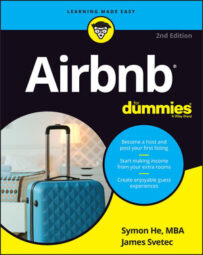Put your best listing forward
Most new hosts who complain about not earning as much as they want have low hanging fruits with their property listing, which can include having photos taken from their phones from the wrong angles with poor lighting at the wrong time of day. Or they have poorly written descriptions and boring titles. Unless you have the best listing profile you can have for your property, you won’t come close to earning your full potential as a host.Ask guests to leave reviews
Although Airbnb will send an email to guests, reminding them to leave a review after their check-outs, hosts who reach out to guests with a friendly reminder will get more guest reviews. Having more reviews, especially from happy guests raving about their wonderful stays, will lead to more bookings and profits by making your Airbnb listing more appealing to future guests. However, asking for more reviews when you’re not meeting guest expectations consistently is just asking for trouble.Tailor amenities to your audience
Understanding who your guests are can help you better cater to their specific needs. For instance, business travelers have very different needs than families with young children. Pay attention to the type of guests who stay at your listing and look for ways to add relevant amenities. For example, having family-friendly games can help attract family travelers while having a dedicated work station can appeal to the business travelers. The more you can make your listing an easy decision for your target traveler audience, the more bookings you’ll get.Offer add-on goods and services
 ©Nitr/Shutterstock.com
©Nitr/Shutterstock.comAfter your guests book with you, you’ll have a captured audience during the length of their stay. Why do hotels offer minibars? Some guests want to drink. You can do the same by offering a menu of extras like alcohol or breakfast to earn extra income. Hosts can also provide services like pickup and drop-off, guided tours, home-cooked meals, or equipment rental to increase earning potential.
Use appropriate pricing
Charge too much and you risk having more unoccupied nights. Charge too little and you miss out on profits you could have earned from guests who already chose your listing. Figuring out the right price to charge for your listing for any given night requires that you account for many factors that affect pricing, including your competitors’ pricing and availability, seasonality, and special events. Successful hosts understand they can’t do that manually and instead use a third-party pricing tool to set the ideal pricing for your listing automatically.Host more listings
You can earn only so much from a single listing. After you’ve reached maximum occupancy charging the highest rates your market can support, there is little you can do to increase your earnings from that listing. But add another listing or two, and you can quickly grow your earnings on Airbnb. One of the best ways to do that is to offer your hosting services to a property owner who doesn’t want to host themselves. Doing so creates a win-win — hands-off profits for the owners and more earnings for you as a host without having the risk of buying or leasing another property.List an Airbnb experience
Renting a property is not the only way to earn money on Airbnb. A recent but fast-growing opportunity on the platform is for hosts to list an activity rather than a property. Hosting an Experience over a property has many benefits and can help you grow your earnings substantially on the platform.Think long term
Would you take $10 more now to lose $100 later? Probably not. Yet many new hosts make a similar trade-off by taking small short-term gains for bigger long-term losses. Yes, providing an extra supply of incidentals will mean higher costs per stay as guests use more of those items, but this small investment now prevents negative guest reviews that later lead to long-term losses from lost bookings. Similarly, hosts in hot or cold areas where energy costs can be very high for extended air conditioning or heater usage, can earn more in the long term by investing in solar panels that cut energy costs to zero while potentially adding value to their property.Although Airbnb is by far the most prominent example of the growth of sharing economy, it isn’t the only model. If you find that your listing isn’t getting enough bookings on Airbnb, you can look at alternatives like VRBO, HomeAway, FlipKey, and Bookings.com to just name a few.
Putting your listing on multiple platforms requires the use of vacation rental management tools to help you manage the multiple listings and calendars to avoid double bookings and scheduling confusion. These tools can be costly so the option isn’t ideal for properties in low demand markets.

